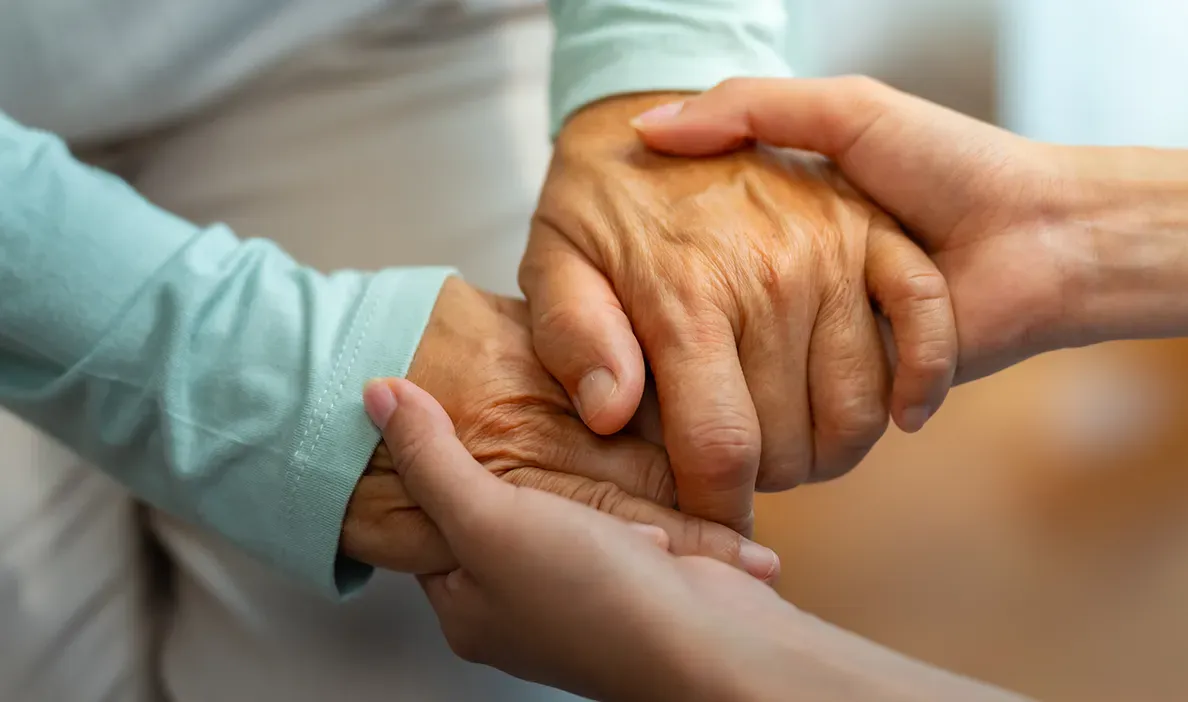When someone you care about is diagnosed with cancer, it may feel overwhelming. You may not know how to help or what to say, but communication is key.1,2 Navigating conversations with empathy and care can make a world of difference to the person with cancer.
There is no rule book on how to best care for and support someone with cancer; you understand your relationship better than anyone else. But we are sharing this guide to offer some practical tips to help you provide support to a loved one with cancer.
Be present and listen
A new diagnosis can bring a mixture of emotions to your loved one. They may feel angry, sad, fearful or guilty. You might find that their mood changes from one moment to the next. These can all be normal ways to react.1
Simply being there and listening to them while they explain their feelings can make a real difference.1
You can show you’re listening by:1
- Maintaining eye contact, but not staring
- Letting them lead the conversation and trying not to interrupt
- Nodding and smiling to show you are listening
- Giving your full attention
- Avoiding giving advice — unless they ask for it
Offering words of support
The right words can provide comfort and reassurance during a challenging time.3 However, it can be difficult to find the right words to say. It's normal to feel unsure, but even simple messages can mean a lot.1
Here are some examples of supportive messages:1,2
- "I’m not sure what to say, but I want you to know I care."
- "I’m sorry you’re going through this."
- "I’m here whenever you want to talk."
- "Please let me know how I can help."
Statements like these can help to show that you care.
Try to avoid giving any advice or using clichés like “Stay strong” or “Think positive,” as they can sometimes make the other person feel like they need to hide any negative emotions.1 Instead, focus on being a good listener and letting the person talk without any interruptions.3
Follow their lead in conversation
Not every conversation needs to be about cancer, or how they are feeling. Sometimes a person with cancer just wants to feel normal and talk about everyday things.3
If it feels appropriate, tell them a funny story, if you think they look good today – let them know, talk about a new movie you have seen, or tell them about a book you’re enjoying.2 These things are all OK to talk about if they feel up to it and can be welcome distractions.3
Equally, if they want to discuss their cancer, be ready to listen.
Be specific in your offers to help
When someone is going through cancer treatment, they may feel too overwhelmed to ask for help.1 So, instead of using broad statements like 'Do you need help?', consider the challenges they might be facing in daily life and offer specific support like:
- Offering to drop off some meals for the week
- Picking the kids up from school a few days a week
- Offering to do the food shop
- Feeding or walking the dog
It’s important that you only make offers you know you can commit to. If you say you’ll bring over a meal, make sure you do. Keeping your word and showing up will demonstrate that you really care.
Keep the conversation going
Being there for someone requires more than one conversation over coffee or one helpful errand. Cancer treatment can be a long and tiring journey, so it’s important to stick around and be there as much as you can.
So, send regular texts, go for a weekly coffee, celebrate their treatment milestones, and keep showing up, even if they seem withdrawn. If you’re part of the same friend group, you can coordinate with your friends or make a rota where you all take turns to help.1
Everyone’s experience with cancer is different, so it’s important to stay flexible and be patient. Remembering that your loved one is still the same person, even after a diagnosis of cancer, will help you to support them in a way that really matters.
References
- Cancer Research UK. How to support someone with cancer. Available at: www.cancerresearchuk.org/about-cancer/coping/family-friends-caregivers/how-support-someone-with-cancer [Accessed June 2025].
- American Cancer Society. When someone you know has cancer. Available at: www.cancer.org/cancer/caregivers/when-someone-you-know-has-cancer.html [Accessed June 2025].
- City of Hope. Cancer etiquette. Available at: www.cancercenter.com/community/for-caregivers/cancer-etiquette [Accessed June 2025].






